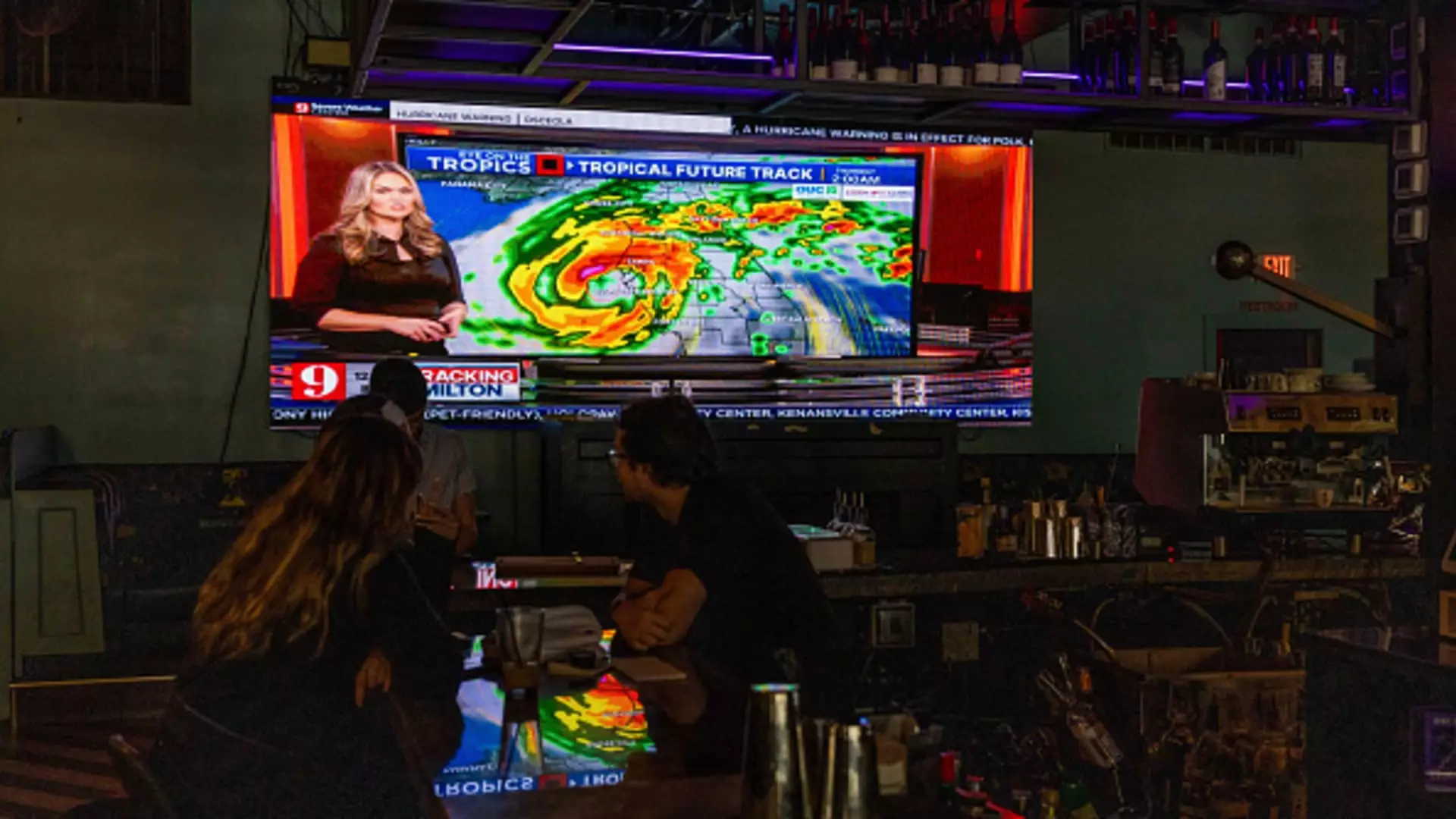On a day marked by cautious optimism, stocks surged on Tuesday, as investors began to sense a potential “soft landing” for the economy. This term refers to an adept managing of inflation rates by the Federal Reserve, aiming to stabilize prices without derailing economic growth. Observing the key market indices, the S&P 500 experienced a nearly 1% uptick, while the Nasdaq Composite impressively soared by approximately 1.5%. The Dow Jones Industrial Average lagged slightly behind, achieving a more modest increase of 0.3%.
Market sentiment has been significantly influenced by the Fed’s recent decision to cut interest rates by half a percentage point last month. A stronger than anticipated jobs report for September has contributed to the narrative that the economy is resilient enough to handle the Fed’s ongoing efforts to combat inflation. Investors are eagerly awaiting the release of the Federal Reserve’s latest meeting minutes, set to provide further insights into the central bank’s economic outlook and policy approach.
As Wall Street grapples with financial signals, nature raises its own set of challenges. Hurricane Milton is set to make landfall in central Florida, bringing with it severe winds and torrential rains. Forecasts indicate that the storm could impose damages exceeding $50 billion, with escalating estimates potentially soaring past $175 billion in a worst-case scenario. Airlines are already feeling the impact, having canceled over 750 flights, while several cruise lines are rerouting their vessels and local theme parks brace for disruption.
The ripple effects of the hurricane are already being felt among major corporations, with Goldman Sachs estimating that Disney’s Parks and Experiences segment could see a dip in earnings before interest and taxes ranging from $150 million to $200 million during their fiscal first quarter of 2025. As Floridians prepare for the storm, they have started to stockpile essential goods, leading nearly 16% of the state’s gas stations to run dry by late Tuesday morning, amplifying the sense of urgency in the community.
In the realm of tech and regulation, significant shifts are underway. The U.S. Justice Department is contemplating measures to dismantle Alphabet’s Google following a recent ruling that deemed the company to possess monopoly power in the search engine market. Proposed remedies could enforce substantial changes, including requirements to alter Google’s operation of its flagship search product to foster competition. These potential adjustments might impose non-discriminatory conditions that would ensure emerging technologies, such as AI, can compete fairly against Google’s offerings.
Responses from Google have been critical, labeling the proposals as “radical” and warning of potential negative repercussions for consumers. The extensive implications of these regulatory moves could unfold over a lengthy timeline, as legal processes may extend into the coming year, creating uncertainty for investors and consumers alike.
Moreover, TikTok finds itself at the center of a wave of lawsuits spearheaded by a bipartisan coalition of state attorneys general. These officials allege the impactful social media platform is endangering children’s mental health while also operating unlawfully regarding financial transactions. TikTok has dismissed these allegations, asserting its commitment to safeguarding its younger users. They encounter mounting opposition, as recent legal maneuvers threaten to impose restrictions that could dramatically alter its operations in the U.S., further complicating its financial standing.
Compounding the week’s instability, Boeing is facing ongoing turmoil as negotiations with striking workers have reached an impasse. The aerospace giant withdrew its contract offer to a workforce of approximately 33,000 machinists, indicating that further discussions are currently unfeasible. Boeing’s management has contended that the union has not taken their higher wage proposals into account, while the union, represented by the International Association of Machinists and Aerospace Workers, underscores that Boeing has neglected to enhance essential employee benefits.
This prolonged strike falls heavy on Boeing, already grappling with the repercussions of preceding difficulties in their operations. As the situation unfolds, the impact on Boeing’s finances is anticipated to deepen, casting a shadow over future earnings as analysts continue to monitor the fallout closely.
As investors strategize and prepare for market fluctuations driven by weather, legislation, and corporate governance, the current landscape presents a kaleidoscope of opportunities and challenges requiring keen attention.


Leave a Reply